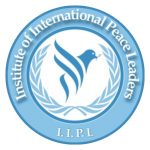Achieving UN Sustainable Development Goals 2030 in Pakistan: Challenges, Strategies, and Way Forward
Abstract:
The United Nations Sustainable Development Goals (SDGs) 2030 provide a comprehensive framework to address global challenges and build a more sustainable and equitable world. Pakistan, like many other nations, faces unique challenges in achieving these goals. This research paper aims to explore the strategies and innovative approaches necessary for Pakistan to make significant progress towards the SDGs. By analyzing the current status, identifying challenges, and proposing potential solutions, this paper provides insights into how Pakistan can contribute to the global agenda for a better future.
- Introduction
The United Nations Sustainable Development Goals (SDGs) 2030 constitute a comprehensive and far-reaching global agenda aimed at addressing some of the most pressing challenges facing our world today[1]. These challenges encompass a wide spectrum, including the eradication of poverty, the reduction of inequalities, combating climate change, and preserving environmental integrity[2]. These goals are not isolated; rather, they are intricately linked, forming a holistic framework that recognizes the interconnectedness of global issues[3].
Pakistan, a nation known for its rich diversity and ongoing development[4], is deeply committed to achieving these ambitious SDGs. However, the path to realizing these goals in Pakistan is distinct due to the country’s specific context and challenges. Pakistan is confronted with a unique set of socioeconomic, environmental, and political circumstances that necessitate tailor-made strategies for SDG implementation. These challenges include high poverty rates, income disparities, deficiencies in education and healthcare, and threats from climate change and environmental degradation.
This research paper delves into the strategies and innovative approaches that Pakistan can employ to make substantial headway towards the UN SDGs 2030. It recognizes that Pakistan’s journey towards these goals involves not only acknowledging its distinctive challenges but also capitalizing on its unique strengths and opportunities[5]. In essence, this paper aims to provide a roadmap for Pakistan’s sustainable development, which involves the active participation of the government, civil society, and the private sector[6]. By addressing these multifaceted issues and tailoring solutions to its unique context, Pakistan can make a significant contribution to the global endeavor to build a more equitable and sustainable world by 2030[7].
[1] United Nations, “Transforming Our World: The 2030 Agenda for Sustainable Development,” 2015.
[2] Ibid.
[3] World Bank, “Pakistan Overview,” 2021.
[4] Government of Pakistan, “Pakistan’s Progress Report on Sustainable Development Goals,” 2019
[5] Government of Pakistan, “National Framework for the Implementation of SDGs in Pakistan,” 2017.
[6] UNDP Pakistan, “Role of Civil Society in the Implementation of SDGs in Pakistan,” 2020.
[7] United Nations, “Global Sustainable Development Report 2019: The Future is Now – Science for Achieving Sustainable Development,” 2019.
- Assessing Pakistan’s Current Status Regarding SDGs:
To achieve the SDGs, it’s essential to understand where Pakistan currently stands concerning each goal. Pakistan has made progress in some areas, particularly in education and gender equality. However, challenges persist, particularly in poverty alleviation, healthcare, and environmental sustainability.
- Challenges Hindering SDGs Implementation in Pakistan:
Pakistan faces numerous challenges that hinder SDGs implementation. Poverty and income inequality are persistent issues, with a significant portion of the population living below the poverty line. Access to quality education remains limited, particularly in rural areas, contributing to disparities. Basic healthcare services are insufficient, and there are disparities in healthcare access. Additionally, access to clean water and sanitation remains a problem in various regions. Environmental degradation and climate change pose substantial threats.
- Strategies for Achieving SDGs in Pakistan:
To overcome these challenges, Pakistan must adopt a multi-faceted approach:
Eradicating poverty and reducing inequality requires introducing social safety nets, promoting inclusive economic growth, and enhancing progressive taxation and wealth redistribution. Improving education can be achieved by allocating a higher budget, enhancing teacher training, and promoting the use of technology in education. Enhancing healthcare access involves investing in healthcare infrastructure, strengthening healthcare delivery systems, and providing universal health coverage. In addressing water and sanitation issues, investment in water infrastructure and sanitation facilities is crucial, along with promoting water conservation and improving water quality monitoring. To combat climate change and enhance environmental sustainability, Pakistan should implement policies to reduce greenhouse gas emissions, promote renewable energy sources, and strengthen environmental regulations and enforcement.
- Innovation and Technology:
Leveraging innovation and technology is pivotal for Pakistan’s progress towards the SDGs. Initiatives such as mobile banking have transformed access to financial services, with platforms like JazzCash and Easypaisa providing unbanked populations with opportunities for economic growth, aligning with SDG 1 (No Poverty) and SDG 8 (Decent Work and Economic Growth). E-governance platforms, like the Citizen’s Portal app, enhance transparency and accessibility of public services, empowering citizens, reducing corruption, and contributing to SDG 16 (Peace, Justice, and Strong Institutions). Moreover, digital health solutions such as Sehat Kahani connect remote communities with healthcare professionals, expanding access to healthcare services, particularly in underserved areas, and supporting SDG 3 (Good Health and Well-being).
- Private Sector Engagement:
The engagement of the private sector is essential for advancing the SDGs in Pakistan. Public-private partnerships can drive sustainable solutions in various sectors. For instance, private investments have played a significant role in infrastructure development, including energy generation and transportation. The Thar Coal Project, funded by private investments, aligns with SDG 7 (Affordable and Clean Energy). In the healthcare sector, private hospitals and clinics provide quality healthcare services, exemplified by the Shaukat Khanum Memorial Cancer Hospital and Research Centre, contributing to SDG 3 (Good Health and Well-being). Additionally, companies like Engro and Unilever Pakistan have adopted sustainable and environmentally responsible practices, promoting SDG 12 (Responsible Consumption and Production).
- Civil Society and Community Engagement:
Mobilizing civil society and communities amplifies the impact of SDG initiatives in Pakistan. Community-led water projects in collaboration with organizations like “Akhuwat Foundation” work directly with local communities to improve access to clean water and sanitation, addressing SDG 6 (Clean Water and Sanitation). Youth-led climate movements, such as “Climate Action Pakistan,” raise awareness about climate change and mobilize communities for sustainable practices, aligning with SDG 13 (Climate Action). This grassroot engagement not only raises awareness but also fosters a sense of ownership and responsibility toward the SDGs.
- Role of Education:
Promoting education on sustainable development within the educational system empowers future generations to actively participate in achieving the SDGs. Initiatives like the “Green Schools Program” promote sustainability practices within schools, teaching students about environmental conservation and sustainability, thus supporting multiple SDGs, including SDG 4 (Quality Education) and SDG 13 (Climate Action). Moreover, universities offering specialized courses in sustainable development are preparing students to address complex global challenges and contribute to various SDGs. Educating the youth on sustainable development ensures that they become informed and proactive citizens in the journey toward SDG achievement.
- Monitoring and Accountability:
Establishing robust monitoring and evaluation systems is fundamental to track progress and ensure accountability in SDG implementation. For instance, the Pakistan Citizen’s Portal empowers citizens to report grievances, monitors the government’s responses, and holds public officials accountable, aligning with SDG 16 (Peace, Justice, and Strong Institutions). The government’s establishment of Sustainable Development Units is another critical step to monitor and evaluate SDG implementation. Such units are crucial in ensuring that progress aligns with the targets and timelines set for each SDG.
- Conclusion:
The United Nations Sustainable Development Goals 2030 present an ambitious but necessary global agenda. Pakistan, like many other nations, faces unique challenges in achieving these goals. By assessing its current status, acknowledging challenges, and implementing strategies focused on poverty reduction, education, healthcare, water and sanitation, and environmental sustainability, Pakistan can significantly contribute to the global SDGs agenda.
While progress towards these goals will not be easy, it is possible through a combination of government commitment, innovative solutions, private sector engagement, and active involvement of civil society. Education, technology, and monitoring systems will play pivotal roles in ensuring that Pakistan moves closer to achieving the SDGs by 2030.
References
- Rehman, A. A. Shah and K. Ahmed, “e-Government Identification to Accomplish Sustainable Development Goals (UN 2030 Agenda) A Case Study of Pakistan,” 2018 IEEE Global Humanitarian Technology Conference (GHTC), San Jose, CA, USA, 2018, pp. 1-6, doi: 10.1109/GHTC.2018.8601890.
- Siddiqi S, Aftab W, Siddiqui FJ, et alGlobal strategies and local implementation of health and health-related SDGs: lessons from consultation in countries across five regionsBMJ Global Health 2020;5:e002859.
- Ullah, R., Ahmad, H., Rehman, F. U., and Fawad, A. (2021). Green innovation and Sustainable Development Goals in SMEs: The moderating role of government incentives. Econ. Admin. Sci.doi: 10.1108/JEAS-07-2021-0122
- 2022. “Pakistan Floods 2022.” September 28. https://reliefweb.int/report/pakistan/pakistan-2022-monsoon-floods-situation-report-no-5-9-september-2022.
Author
-

Bilal Ali is a communication specialist and National Youth Leader on behalf of Institute of International Peace Leaders
View all posts
